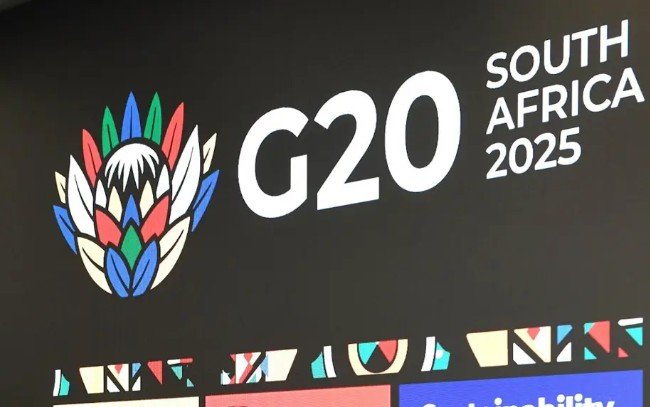India at Johannesburg: What Makes This G20 Summit Strategically Significant
Modi’s participation signals India’s bid to shape global governance on climate, digital rules, critical minerals, and Global South priorities.
New Delhi, Nov 20 : When Prime Minister Narendra Modi arrives in Johannesburg later this week for the G20 Leaders’ Summit, he steps into a forum charged with exceptional geopolitical significance. This year’s gathering marks the fourth consecutive G20 hosted in the Global South a subtle yet powerful indicator of the shifting centre of gravity in global affairs.
For India, which has spent the last decade positioning itself as both a bridge and a balancing force in an increasingly fractured world, the stakes could not be higher. Modi will address all three summit sessions, hold several bilateral meetings on the sidelines, and participate in the India–Brazil–South Africa (IBSA) dialogue a grouping rooted in the spirit of democratic multilateralism in the developing world.
Johannesburg, however, is not about nostalgia.
It is about power who gets to shape the rules of a 21st-century world defined by climate volatility, digital disruption, supply chain anxiety, and resource insecurity.
The economic landscape has transformed dramatically. The non-G7 members of the G20 representing the Global South now account for one-third of global GDP, up from just 15 per cent at the turn of the century. And they want a greater voice in global decision-making. Even though the global economy has stabilised since the 2008 recession, many developing nations continue to face acute debt distress.
Legacy debt systems designed in the Bretton Woods era now collide with new lenders and opaque financial practices, deepening economic strains across Africa and the developing world.
India’s Strategic IBSA Push
Modi’s presence at the IBSA Leaders’ Meeting underscores India’s effort to revitalise the grouping as a strategic counterweight to China-led platforms. India, South Africa, and Brazil want IBSA to drive global debates on development financing, climate justice, governance reforms, and trade equity.
With the African Union now a full G20 member a diplomatic milestone that India strongly championed during its 2023 presidency — New Delhi sees a historic opportunity to institutionalise Global South priorities. More African representation could compel the G20 to treat development challenges not as episodic crises but as structural global failures requiring sustained collective action.
Climate Financing and Fair Transitions
Climate negotiations will be another critical battleground. India is expected to push for predictable and adequate climate financing, technology transfer, and the principle that development and decarbonization must progress together. The message is clear: the burden of climate transition cannot fall most heavily on nations that contributed the least to the problem.
Critical Minerals: A New Strategic Front
Few issues carry as much long-term consequence as critical minerals — the backbone of digital infrastructure and clean energy. India’s dependence on single-source imports, especially from China, has become a strategic vulnerability.
Delhi is expected to advocate strongly for a G20 Critical Minerals Framework, seeking transparent mining rules, diversified supply chains, and value addition within developing economies rather than extractive exploitation. This could be one of the rare issues where Global South and Western priorities align though China and the US, both dominant in critical mineral processing, may not easily concede space.
AI Governance: India’s Bid for a Middle Path
Artificial intelligence will be another arena of contestation. With global regulatory approaches splintering — innovation first in the US, rights centric in Europe, and state controlled in China — India is pitching a balanced framework that emphasises transparency, safety, equitable access, and Global South participation.
India has argued that healthcare algorithms should serve all nations fairly, training data should avoid Global North biases, and developing countries must help set global AI standards not merely comply with them. Whether this vision takes shape or stays on paper will be revealed in time.
As Modi lands in Johannesburg, India hopes to turn a favourable geopolitical moment into lasting institutional reform and redefine its role in shaping global governance for the decades ahead.




